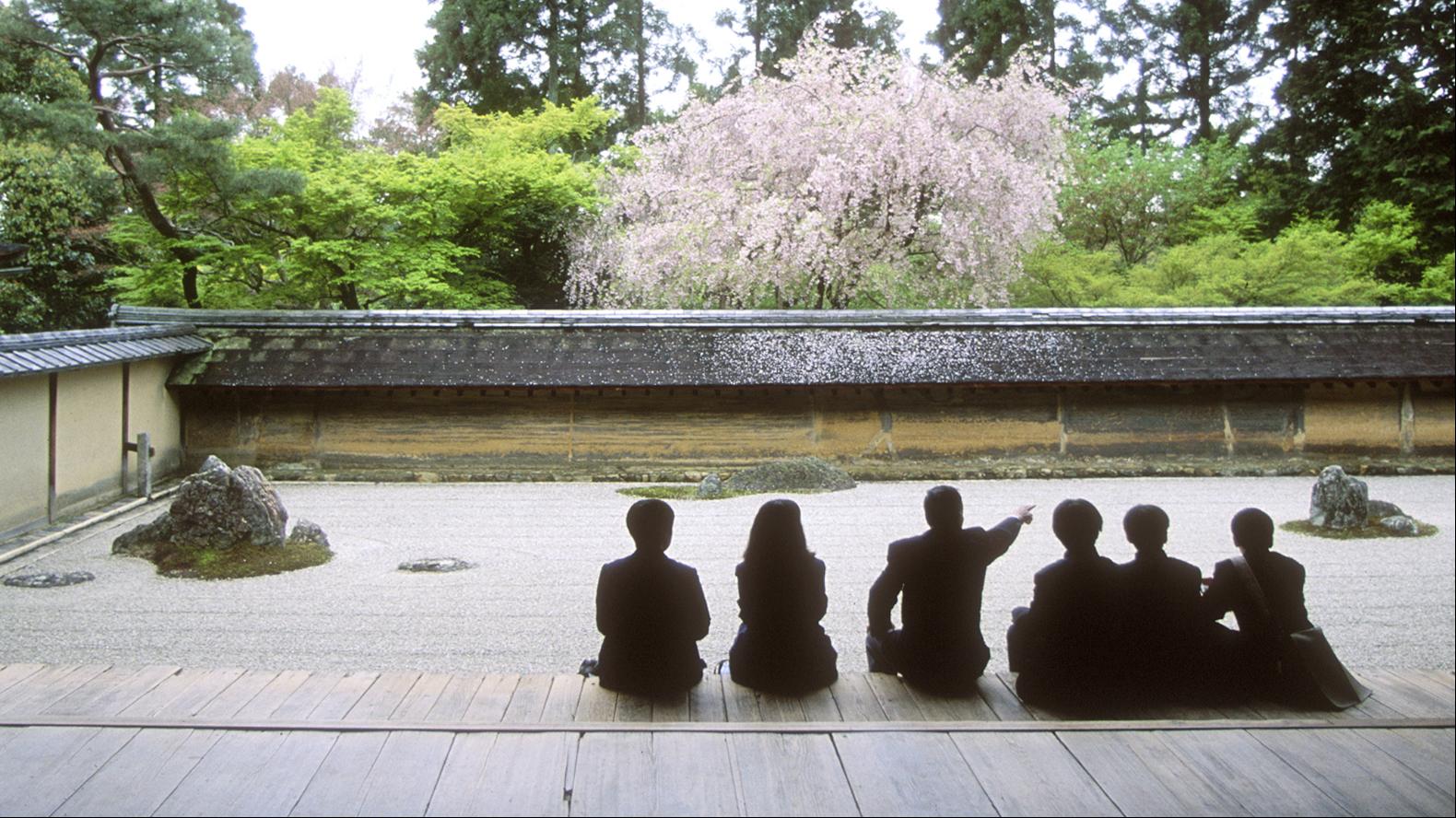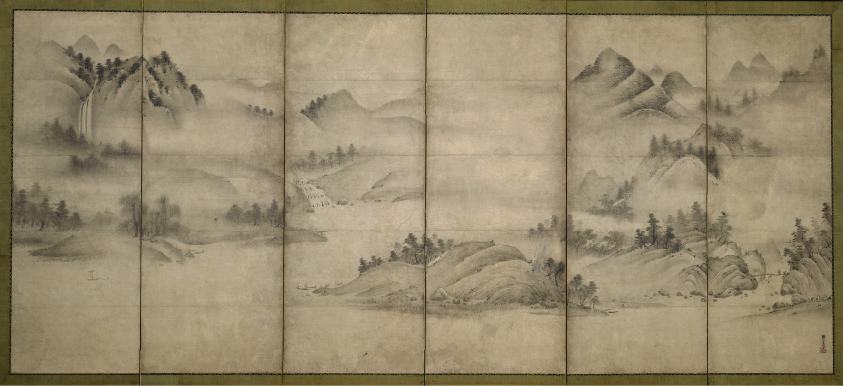
By Sophie Walker
“Dear Corbu”, wrote Walter Gropius to his friend and fellow design pioneer Le Corbusier on a postcard from the Ryoan-ji garden in Kyoto in 1954, “all that we have been fighting for has its parallel in old Japanese culture. This rock garden of Zen monks… could be by Arp or Brȃncuși… You would be as excited as I am in this 2000-year-old space of cultural wisdom!”
For some 1,500 years, the Japanese garden has framed complex conceptual ideas with such visual clarity that you would be forgiven for confusing the ancient and the contemporary: with its minimalist aesthetic and continual reinvention, this millennia-old form seems to belong to all time periods.
In the 15th century Zen Buddhist garden of Ryoan-ji, 15 human-scale stones are set into a field of gravel (main picture, above). It is a garden that cannot be entered, but can instead be viewed from a raised platform which runs along the temple meditation hall. To create an unenterable space teases us with the unknowability of the garden, compounded here by a curious game of hide and seek: one of the 15 Ryoan-ji stones always remains hidden from the viewer, with the stone differing depending on the viewpoint. This is a carefully crafted phenomenon designed to render the garden an enigma — a shifting space that produces something captivating and deeply abstract.

This sense of unknowability encourages mitate, a Japanese aesthetic concept that signifies the perception of an object in a non-habitual way, a leap of the imagination. It corresponds to the Zen Buddhist philosophy that insight cannot be expressed in words but understood only through direct experience. Like a form of metaphysical poetry, mitate implies the layering of meaning and symbolism. The Ryoan-ji garden, for instance, can also be seen as a mountain landscape, similar to those captured by Japanese artists and poets throughout the centuries.
To view Ryoan-ji in this light, we have to put aside our rational, everyday sensibilities. It is a perspective that belongs simultaneously to the intellect and the senses, a combination of that which is immediately observable, that which we do not see, and that which we are asked to imagine. In the Japanese garden, meaning falls into a curious, uncertain space between presence, illusion and belief. In doing so, it becomes a potent site for our creative imagination, framing the garden as a place of discovery.

It is unsurprising, then, that artists, philosophers, poets and mathematicians have all looked to the Japanese garden for inspiration. In his sculptural installation piece “Time Garden” (2002), in Osaka, the artist Tatsuo Miyajima incorporates the garden’s characteristic navigation of the relationship between the figurative and the abstract to offer a retelling of the Japanese fairy tale, The Tale of the Bamboo Cutter. In the piece, digital LED counters set amid a grove of bamboo flash non-repeating sequences of numbers from one to nine — a reflection of the continual shifts in meaning central to ancient Japanese gardens.
While Japanese gardens continue to playfully tease, they also strive to achieve deep sincerity, affirming that it is possible to cultivate places of real poetic discovery. They remain an enigma, a threshold beyond which we may discover not simply an arrangement of plants and rocks, but a moment of revelation that belongs to a profoundly subjective, metaphorical way of seeing.
Sophie Walker is the author of The Japanese Garden, published by Phaidon
Photography: SS Osaka/Courtesy Tatsuo Miyajima; Getty; Metropolitan Museum of Art, New York
Also Read More: World News | Entertainment News | Celeb News








